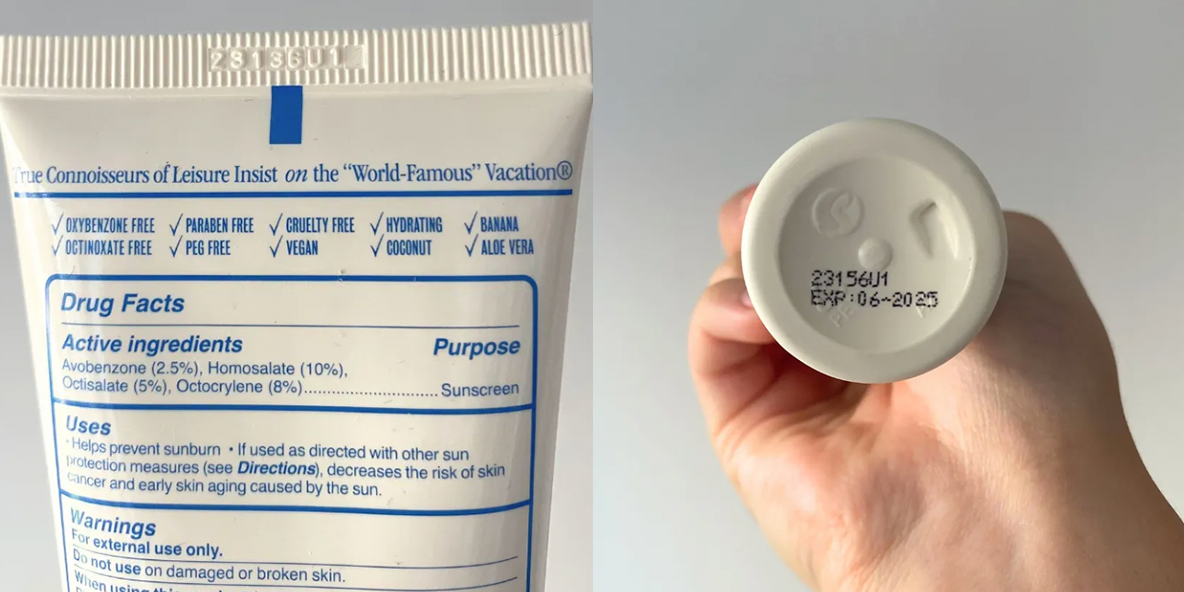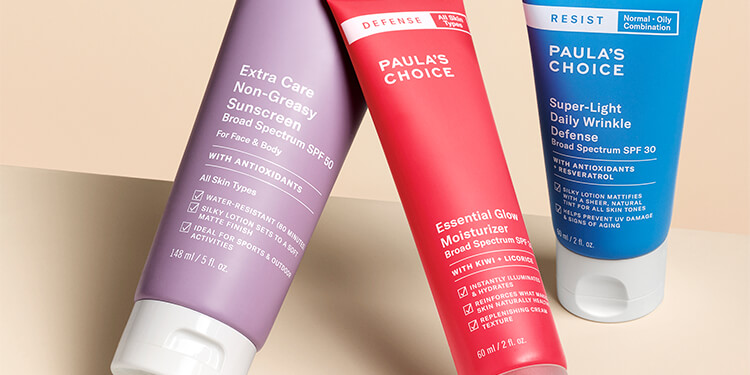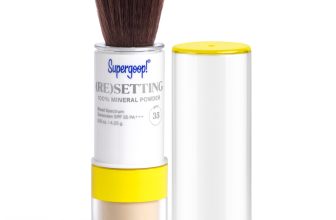Does Sunscreen Have a Use by Date

Yes, sunscreen does have a use by date. Sunscreen typically has a shelf life of about 3 years.
Does Sunscreen Have a Use by Date however, this can vary depending on the specific product and its ingredients. It’s important to check the expiration date and discard any expired sunscreen to ensure its effectiveness in protecting your skin from the sun’s harmful rays. Using expired sunscreen can result in reduced protection and potential skin damage.
In this blog, we will explore the importance of sunscreen expiration dates and provide tips for properly storing and using sunscreen to maximize its effectiveness. By understanding the significance of sunscreen expiration dates, you can make informed decisions to safeguard your skin from sun damage.
The Importance Of Sunscreen Efficacy
Protection Against Uv Rays
Sunscreen is a crucial tool in protecting the skin against the harmful effects of UV rays. Over time, the efficacy of sunscreen can diminish, making it less effective in shielding the skin from the damaging impact of the sun. Regularly checking the expiration date of sunscreen is essential to ensure maximum protection against UV rays.
Sunscreen And Skin Health Maintenance
Proper maintenance of skin health relies on the use of effective sunscreen. Using expired sunscreen can compromise the skin’s barrier and lead to premature aging and an increased risk of skin cancer. It’s imperative to prioritize the efficacy of sunscreen to maintain optimal skin health.
Sunscreen Ingredients And Stability
Sunscreen is a crucial part of protecting our skin from the harmful UV rays of the sun. However, many people are unaware that sunscreen has an expiry date. The effectiveness of sunscreen depends on its ingredients and stability, which can be affected by various factors.
Common Active Components
Most sunscreens contain active ingredients that work by absorbing, reflecting, or scattering the sun’s UV rays. These active ingredients include:
- Oxybenzone
- Avobenzone
- Homosalate
- Octinoxate
- Octisalate
- Octocrylene
These components are often combined to create a broad-spectrum sunscreen that protects against both UVA and UVB rays.
Factors Affecting Product Longevity
The stability of sunscreen ingredients can be affected by several factors, including:
- Exposure to heat and light
- Moisture
- Air exposure
- Chemical reactions
These factors can cause sunscreen to break down and become less effective over time. As a result, it is recommended to replace sunscreen every two to three years, even if it has not reached its expiry date.
It is also essential to store sunscreen in a cool, dry place and avoid leaving it in hot cars or exposed to direct sunlight. Additionally, it is best to avoid using sunscreen that has changed in consistency or color, as this could indicate that the product has expired or become unstable.
Decoding The Sunscreen Expiration Date
Where To Find The Expiration Information
Sunscreen expiration date is typically located on the packaging or the bottle itself.
Regulations On Sunscreen Expiry
In the US, sunscreens are considered over-the-counter drugs and must have an expiry date.

Changes In Sunscreen Over Time
Physical Changes In Texture And Smell
Over time, sunscreen can undergo noticeable changes in its physical characteristics. The texture may become grainy or separated, and the smell might turn rancid or unpleasant. These alterations are indications that the product may no longer be effective and should be discarded.
Efficacy Loss And Chemical Breakdown
Sunscreen’s efficacy can diminish due to chemical breakdown caused by exposure to heat, light, and air. This can lead to a reduction in the product’s ability to provide the intended level of protection. Therefore, it is crucial to check the expiration date and storage recommendations to ensure the sunscreen remains effective.
Risks Of Using Expired Sunscreen
When it comes to protecting our skin from the harmful effects of the sun, sunscreen is an essential tool. However, many people may not realize that sunscreen can expire and become less effective over time. Using expired sunscreen can pose several risks to your skin and overall health.
Reduced Protection And Potential Burns
Expired sunscreen may not provide the level of protection indicated on the label, leading to a false sense of security. The active ingredients in sunscreen degrade over time, rendering the product less effective in shielding the skin from harmful UV rays. This can result in increased risk of sunburns, premature skin aging, and potential long-term damage such as skin cancer.
Skin Irritation And Allergic Reactions
Expired sunscreen can also lead to skin irritation and allergic reactions due to the breakdown of its components. The chemical composition of the sunscreen can change over time, leading to an increased risk of adverse skin reactions. This may include rashes, itching, redness, and discomfort, which can be particularly concerning for individuals with sensitive skin or existing skin conditions.
Proper Storage To Extend Sunscreen Life
Proper storage of sunscreen is essential to maintain its effectiveness and extend its shelf life. Storing sunscreen in the right conditions can help prevent premature degradation and ensure that it remains potent when you need it most.
Ideal Storage Conditions
- Keep sunscreen in a cool, dry place away from direct sunlight.
- Store sunscreen at temperatures below 77°F (25°C) for optimal longevity.
- Avoid leaving sunscreen in hot cars or exposed to high temperatures.
Tips To Prevent Premature Degradation
- Check the expiration date and discard any expired sunscreen.
- Close the sunscreen container tightly after each use to prevent air exposure.
- Avoid contaminating sunscreen by not sharing it with others.
- Do not dilute sunscreen with water or other liquids.
Making The Most Of Your Sunscreen
Using sunscreen is essential for protecting your skin from the harmful effects of the sun’s UV rays. However, it’s not just about slathering on any sunscreen and calling it a day. To truly make the most of your sunscreen, there are a few things you need to keep in mind.
Application Best Practices
When it comes to applying sunscreen, there are a few best practices you should follow:
- Apply sunscreen at least 15 minutes before you go outside
- Make sure to cover all exposed skin, including your face, ears, neck, and the tops of your feet
- Use a generous amount of sunscreen – about a shot glass full for your entire body
- Reapply sunscreen every two hours, or immediately after swimming or sweating
Understanding Spf And Application Frequency
SPF, or Sun Protection Factor, is a measure of how well a sunscreen will protect your skin from UVB rays, which are the main cause of sunburn. The higher the SPF, the more protection the sunscreen provides.
However, it’s important to note that no sunscreen can provide 100% protection. Even with an SPF of 50 or higher, some UV rays will still penetrate your skin. That’s why it’s important to reapply sunscreen every two hours, or immediately after swimming or sweating.
Additionally, if you’re spending a lot of time outdoors, it’s a good idea to wear protective clothing, such as a hat and long-sleeved shirt, and to seek shade during the hottest parts of the day.
By following these best practices and understanding the importance of SPF and application frequency, you can make the most of your sunscreen and protect your skin from the harmful effects of the sun.
When To Replace Your Sunscreen
Sunscreen does have an expiry date, usually lasting around 3 years. Check the label for the specific date. It’s crucial to replace sunscreen after it expires to ensure proper sun protection.
When to Replace Your Sunscreen H3 headings must be in HTML syntax. Sunscreen is a vital part of any skincare routine, offering protection against harmful UV rays. However, like many products, sunscreen does have a shelf life. Knowing when to replace your sunscreen is crucial to ensure its effectiveness and keep your skin safe. Signs of Expiry to Watch For H3 headings must be in HTML syntax. Signs of Expiry to Watch For When it comes to checking if your sunscreen is past its prime, there are a few key indicators to look out for. Firstly, examine the expiration date on the packaging. If it has passed, it’s time to bid adieu to that bottle. Additionally, changes in consistency, such as a runny or lumpy texture, can signal that the sunscreen is no longer suitable for use. Finally, if the product’s color has noticeably altered, it’s best to err on the side of caution and invest in a new bottle of sunscreen. Recommendations for Regular Replacement H3 headings must be in HTML syntax. Recommendations for Regular Replacement To ensure your sunscreen remains effective, it’s essential to adhere to some basic guidelines for replacement. As a general rule of thumb, it’s wise to refresh your sunscreen supply annually, even if it hasn’t reached its official expiration date. Additionally, if you notice any changes in the product’s texture, smell, or color, don’t hesitate to replace it promptly. By staying mindful of these recommendations, you can continue to shield your skin from the sun’s harmful rays effectively.
.png)
Frequently Asked Questions
How To Know If Sunscreen Is Expired?
Check the sunscreen label for an expiration date. If not listed, use the general rule of 3 years. Separation or color change indicates expiration.
What If Sunscreen Doesn’t Have An Expiration Date?
If sunscreen doesn’t have an expiration date, it’s generally safe to use for up to three years.
How Long Does Sunscreen Actually Last?
Sunscreen typically lasts for about 2 hours. Reapply after swimming or sweating. Use water-resistant sunscreen for longer protection.
How Important Is The Use By Date On Sunscreen?
The use-by date on sunscreen is important for effectiveness. Expired sunscreen may not provide adequate protection.
Conclusion
In essence, sunscreen does have an expiry date. It’s crucial to check the label for the expiration date to ensure effectiveness. Using expired sunscreen may not provide adequate protection from harmful UV rays. Remember, staying safe in the sun means using fresh sunscreen for optimal sun protection.







